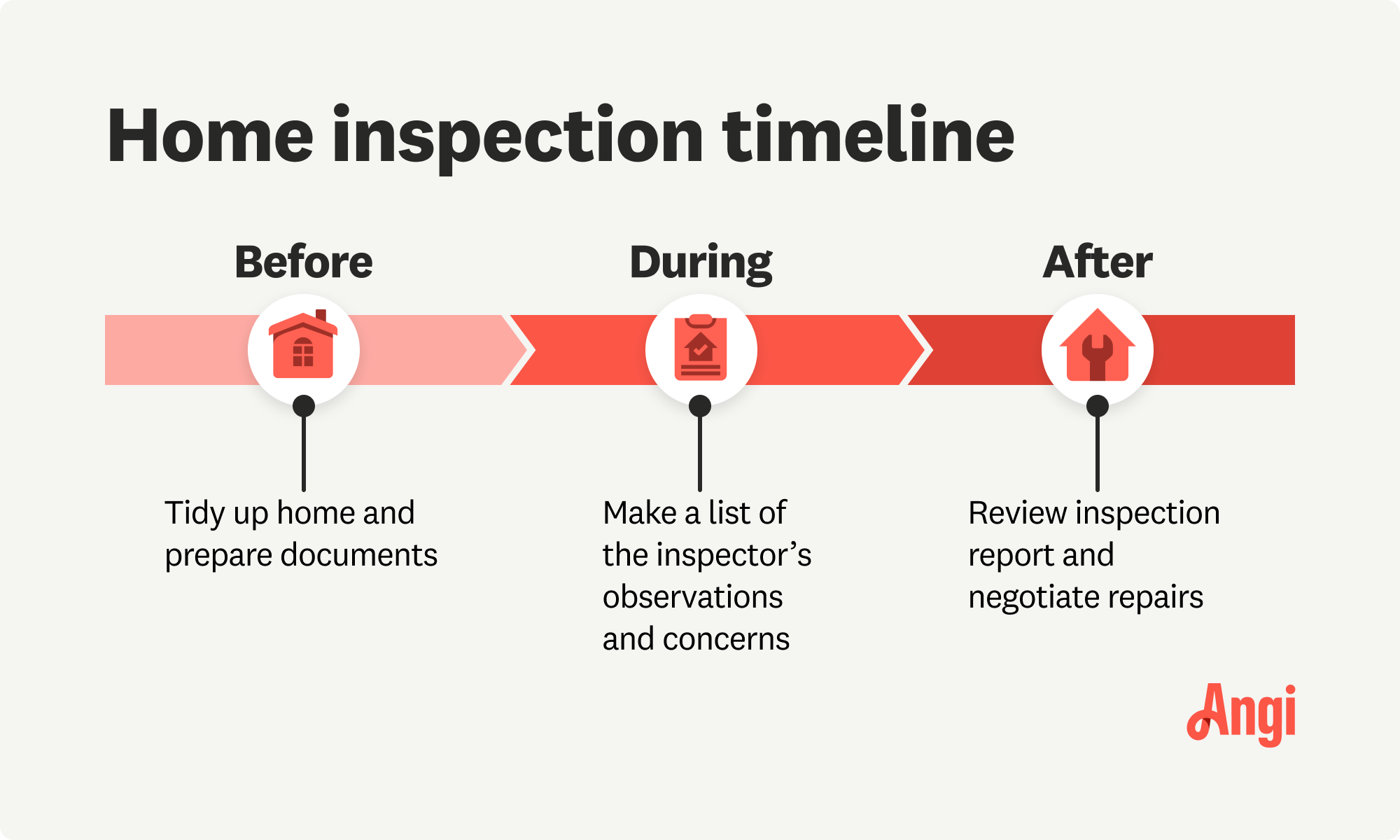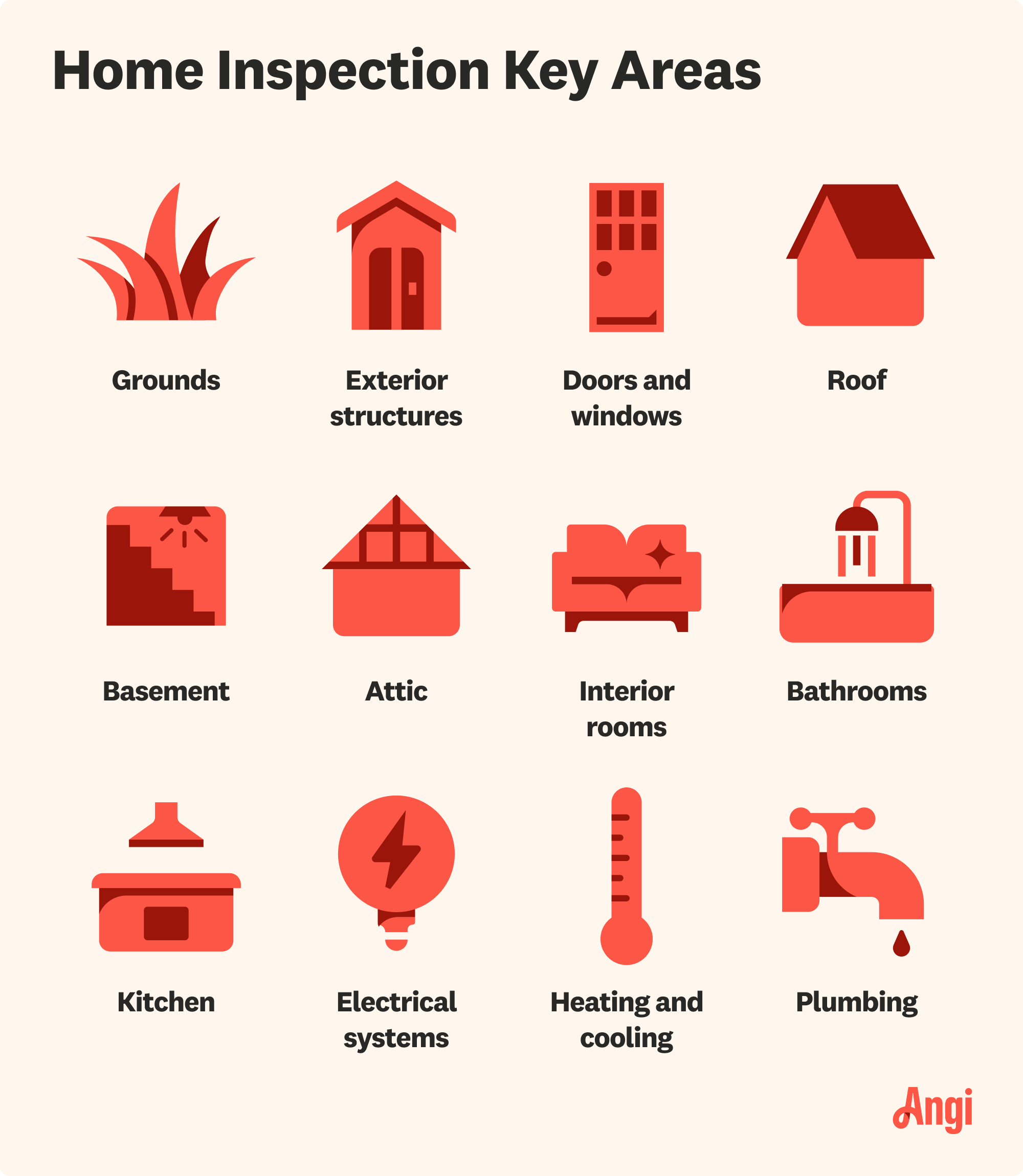Home Inspection: What’s Included and What’s Not?
Call in a pro to see your home in a new light


Home inspections provide details about the condition of a home.
Inspection reports identify defects and potential hazards.
Both new and experienced homeowners benefit from understanding their home’s condition and maintaining its value.
Home inspections take between 2–3 hours to complete.
Whether you’ve got eyes on a new home or are a seasoned homeowner, a thorough home inspection can help you understand your property and how to get it in tip-top shape.
Your home is more than just walls and a roof—it’s a complex system of parts that requires careful attention. Think of a home inspection as a backstage pass, revealing the inner workings that keep your home running. It can help identify safety concerns, uncover issues that might arise during a selling process, and give you an overall picture of your property’s value. Here’s a breakdown of all that a home inspection covers and what you can learn about your home.

What’s the Purpose of a Home Inspection?
Home inspections provide a thorough report of various aspects of your home, from checking nooks and crannies for surprises to ensuring the home is aging like fine wine. A home inspection can uncover any hidden issues for prospective buyers or serve as a maintenance check if you already own the home.
Radon is a very common, undetectable threat in homes, and it's not checked for in standard home inspections. A typical home inspection also won't check for other hazardous materials such as asbestos, radiation, formaldehyde, methane, and other substances. Many home inspection services will check for these hazards for an additional cost.
While most inspections occur during the homebuying process, you can hire a local home inspector at any time. Consider it your home’s annual checkup to keep everything running smoothly.
There are a few main goals of a home inspection:
Identify existing or potential issues within the property.
Ensure safety by inspecting for structural damage, leaks, and other risks.
Make informed decisions about negotiating price adjustments.
Comply with local regulations, which may require inspections for renovations or occupancy permits.
Including a home inspection contingency in your sale contract can also provide legal and financial protection, allowing you to back out or renegotiate in case the inspection uncovers any deal-breakers.
What’s Included in a Home Inspection?

Not sure what to expect during a home inspection? An inspector will thoroughly check your home from roof to foundation and compile a report detailing their findings. Home inspections cover the interior and exterior of your home, all its systems and utilities, the appliances and fixtures, and outdoor features.
Inspection requirements vary depending on location, inspection type, and the reason for the inspection, but home inspections normally include:
A roof inspection to check shingles, flashing, gutters, and chimneys and to identify signs of leaks or damage
An inspection of the foundation, basement, and crawl space to look for cracks and signs of water intrusion, bowing, or sagging
An assessment of heating and cooling systems, including an HVAC inspection of the furnace and air conditioning unit as well as checking the water heater and any fireplaces
Checking doors, windows, walls, ceilings, and floors for signs of damage
A thorough inspection of plumbing, electrical, and ventilation systems
An attic inspection to look for signs of water intrusion and ensure proper insulation
An exterior check of siding, outdoor fixtures, walkways and driveways, and steps
Ensuring the yard is graded properly and has adequate drainage
A check of safety features like railings, smoke and carbon monoxide detectors, and fire extinguishers
What’s Not Included in a Home Inspection?
Home inspections are extensive, but they don’t cover everything. Some parts of your house or specific concerns may require an additional inspection by a qualified specialist. Some home inspectors offer these services as add-ons if they’re qualified to do so, but whether you add on with your home inspector or hire another pro, these services will cost extra. Some things that aren’t part of most home inspections include:
Inspecting for mold: A home inspector can identify signs of mold, but for an in-depth mold inspection, you’ll need to hire a mold testing pro.
Inspecting for pests: Home inspectors will let you know where your home is vulnerable to pest intrusion and may note visible signs of pests, but a pest control expert will provide a detailed inspection and recommendations.
Radon testing: Testing for radon is outside the scope of a basic home inspection, so you’ll need to have a separate test.
Gas fireplace inspection: Checking the chimney and the structure of the fireplace is typically included in a home inspection, but you’ll need a gas fireplace pro for a thorough inspection of the fireplace’s workings.
Septic inspection: A home inspector will visually check your tank, but won’t be able to assess specific problems with your septic system. Hire a septic tank company to pinpoint the exact condition of your septic system.
Can You Do a Home Inspection Yourself?
Unless you’re a home inspector yourself, you should leave this job to a local licensed home inspector. They have a home inspection checklist of things they know they need to go through, and skipping over anything may lead to thousands of dollars worth of repairs down the road. Leave the stress and work behind and choose to tag along with a pro rather than act as a DIY inspector.
Choosing the Right Home Inspector
When you’re looking to hire a home inspector, you want an objective third party who’ll identify existing issues and let you know what may need attention soon or in the future. A home inspector who’s affiliated with any parties in a real estate transaction or with a company that offers repair work may not be objective. Check reviews and references for any home inspector you’re considering hiring, and ensure they’re certified and experienced.
A home inspection costs an average of $300 to $425, which is a small investment to identify problems that may lead to costly repairs in the future. Hiring the right home inspector will help you get an accurate and detailed assessment of your home’s condition and highlight any issues that need to be addressed.
A 4-point home inspection is similar to a standard home inspection, but it’s less extensive and is required for home insurance in select states. In a 4-point inspection, inspectors only review four main components—electrical, HVAC, plumbing, and roofing systems.
There are some instances where a buyer may want to skip a home inspection, but this is not usually recommended. While home inspections are not always required as part of the homebuying or selling process, they are in the best interest of buyers. If you choose to skip the home inspection, be prepared to discover a home’s hidden secrets on your own over time.
A home inspection typically takes between two and three hours, but the actual time can vary according to factors like the size of the home, its location, accessibility of certain components, and its age. You should receive a completed inspection report within four days of the inspection.
In most cases, buyers are responsible for paying for a home inspection. This is largely because the home inspection mainly benefits the buyer by providing them with more information about the property before they finalize the sale. It protects their investment from the risk of costly repairs or legal issues.
















